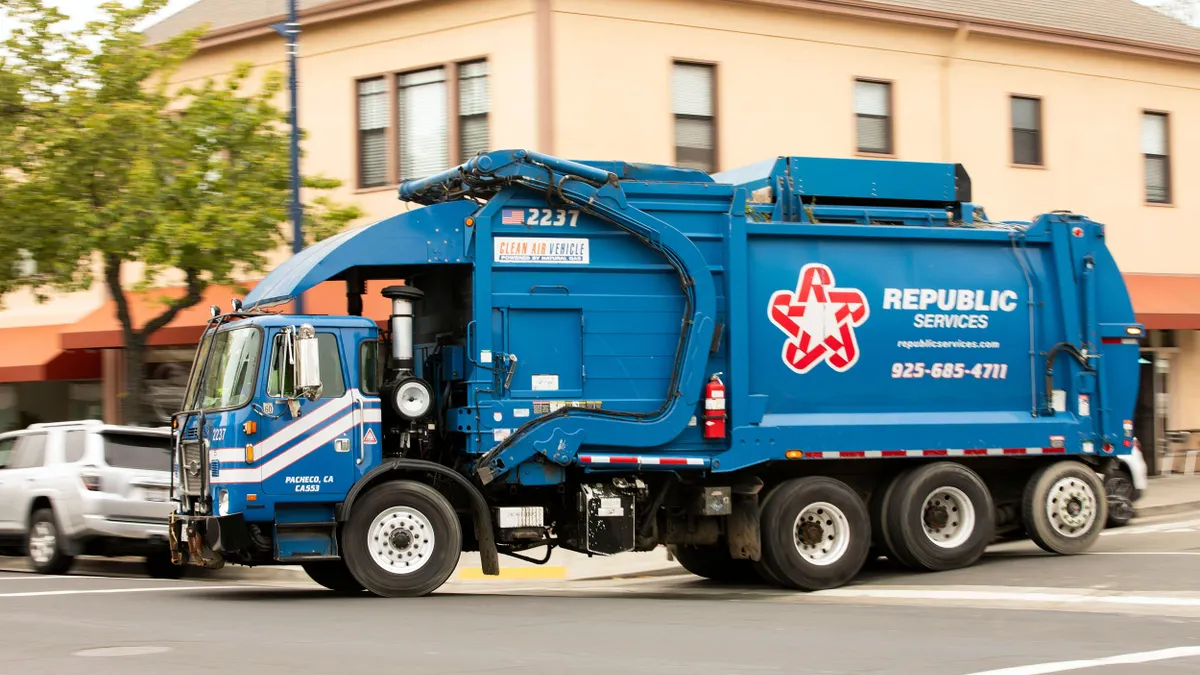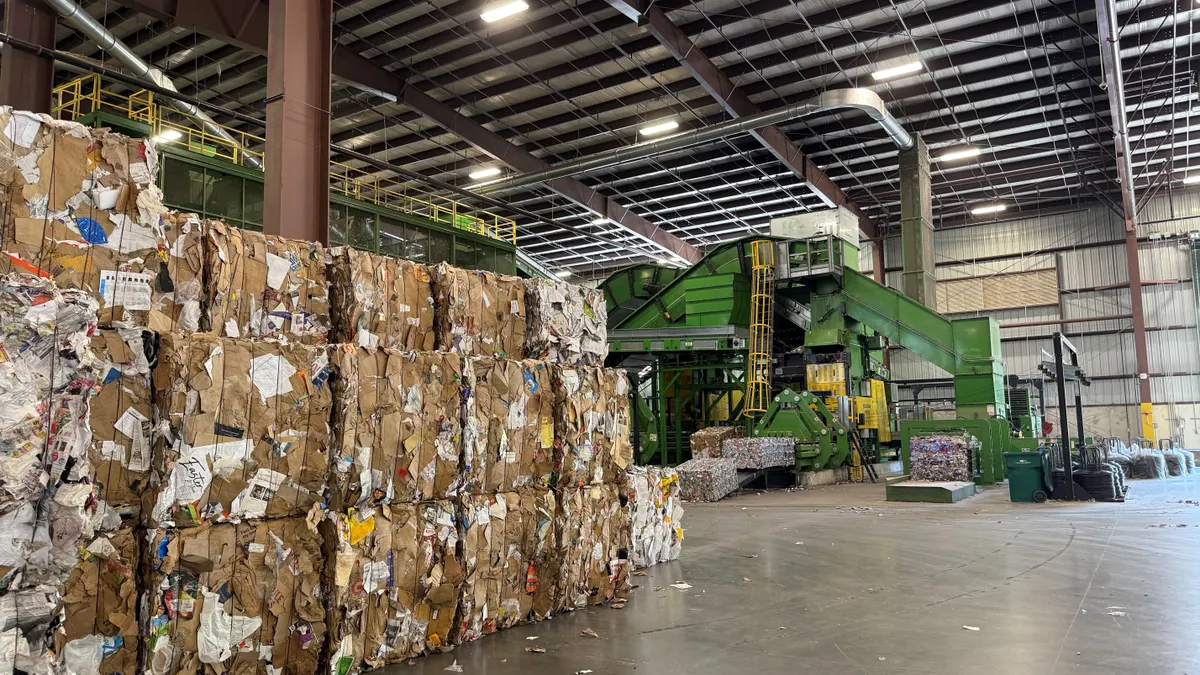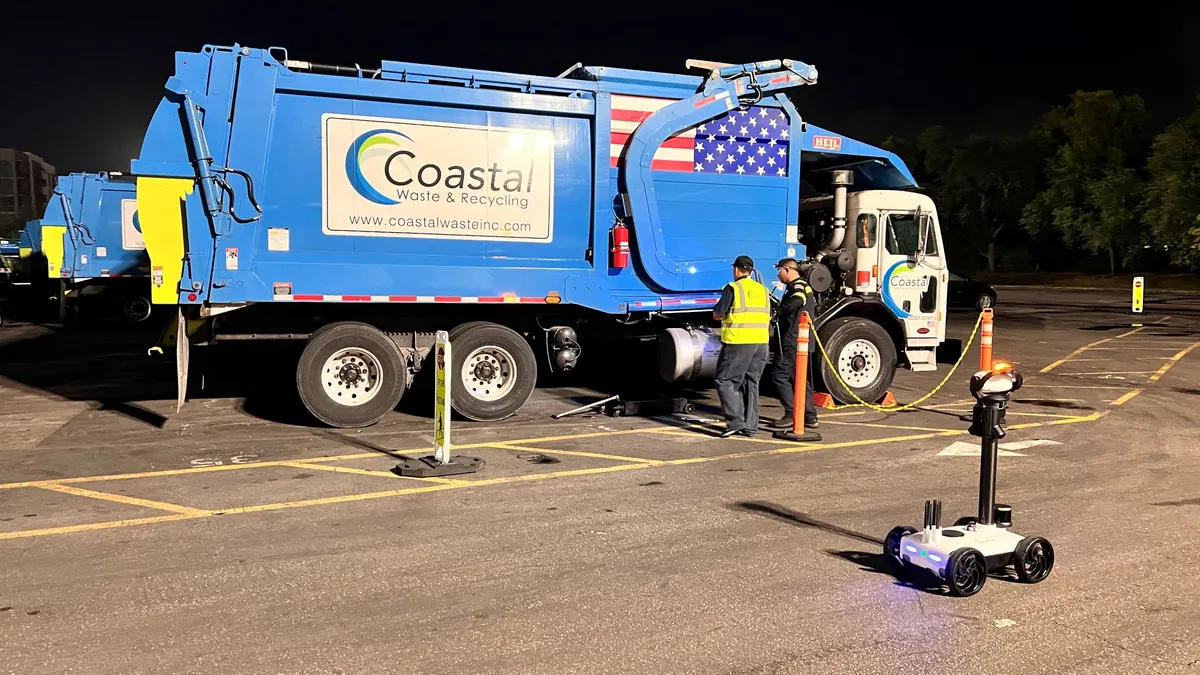Many agree New York's commercial waste industry needs to change. Fewer can agree on why, how, or whether it's happening fast enough.
Stakeholders will bring an array of opinions when the city's zone advisory board has its latest full meeting today. Among the 40 or so attendees, some see franchising as a beacon of light for industry reform, a looming shadow over their businesses, or too sensitive of a subject to discuss publicly. While full implementation is still years away, with growing dissent from new sources, the effects of this broader reform conversation are already being felt in the industry.
The fact that such a disparate group is now engaged in semi-regular discussions about the future of the largest commercial waste market in the U.S. is one of multiple signs that the playing field has shifted. The months since the advisory board last met on Oct. 19 have had many others.
October: Recycling rules
New commercial recycling rules took full effect in Aug. 2017 and led to hundreds of generator violations from the Department of Sanitation (DSNY) by mid-October. According to records reviewed by Waste Dive, the Business Integrity Commission (BIC) began issuing violations to haulers in late October.
A rotating team of four investigators either staked out businesses or followed trucks in order to build a pattern of willful commingling. Violations ranged from $10,000 to $40,000, but were often settled for much lower because companies decided it was cheaper than a legal fight. As of publication, BIC has issued recycling violations in 26 different cases and the agency said more work remains.
"Commingling threatens the goal of achieving zero waste. Generators must separate properly, and trade waste haulers must not commingle source-separated recyclables. Both sides need to do their part," wrote Director of Policy Salvador Arrona via email.
While it's too early to draw meaningful conclusions, many of the initial violations were for mixing small amounts of cardboard with putrescible waste and some companies have been adjusting accordingly.
Action Environmental put additional trucks on the road for cardboard, in addition to staffing up and slowing down at its recycling facility to meet new global market standards.
"It's costing us more money to get that same bale. The processing fees are up," said CEO Ron Bergamini.
Mr. T Carting, which received a cardboard violation, said it might do the same or consider dropping low-volume customers. But newly-appointed CEO Tom Toscano said the bigger problem was glass.
"There is no viable market for the glass produced in New York City," he said. "I am all for trying to find it, but until it exists, stop putting us through this charade on recycling."
DSNY Commissioner Kathryn Garcia recognized the challenge of glass but said it's not "something that is impossible to find outlets for." When asked if the city planned to issue any waivers to the commercial industry she said, "No... They need to work harder."
November: Safety semantics
Following the city's third safety symposium in late October, the topic received further attention at a Nov. 27 City Council sanitation committee hearing.
Among the litany of statistics shared by the Department of Transportation (DOT), two stood out. DSNY trucks hadn't caused a fatality since 2014. Private waste trucks (including some not registered with BIC) caused seven in 2017.
This sparked outrage from various council members, including Committee Chair Antonio Reynoso, who called the industry's safety efforts a "dog and pony show." Yet comments from BIC Commissioner Dan Brownell may have had the most lasting effect.
When asked whether long shifts were a factor in crashes, he said there was probably "no question that to a large extent those are the things that lead to the crashes that result in serious injury or death." Brownell also expressed interest in new rules to set maximum driving hour requirements, establishing an inter-agency crash review panel and moving up the side-guard installation mandate from 2024.
Opinions differ on whether the agency's authority allows it to enact new requirements through a rulemaking process or whether that would require legislation. Arrona told Waste Dive that BIC is "working closely with the Law Department to review our authority under the administrative code."
Multiple companies have said they're set to meet the side-guard requirement by the end of this year and were open to seeing BIC do more. Those that have already invested in new equipment such as cameras see this as a way to level the playing field. Others at varying stages of adaptation say more clarity would help and the collaborative approach is working.
"When they work with our industry, and this current commissioner does that and he's sincere, we've been on board," said Ben Velocci, co-owner of Avid Waste Systems.
Advocates have slowly warmed to Brownell, though remain skeptical that the industry's safety issues can be solved without franchising.
December: Council politics
Heading into the end of the year, the local industry already had a lot on its mind. China's effect on recycling markets was making international news and talk was circulating about Waste Connections finalizing its acquisition of Crown Container. Though the real action was a years-old council bill aimed at reducing transfer station capacity in three neighborhoods.
The bill, co-sponsored by Reynoso and endorsed by Mayor Bill de Blasio earlier that fall, was on its fourth version. By the end, even DSNY had lost track of the odds. Ultimately, the deal collapsed and Intro 495-C never got a vote.
The industry was left feeling victorious after maintaining a more united front than it has in the years since franchising and other factors caused organizational differences. Advocates pointed fingers at a Queens council member, the now-former council speaker blamed it on the Bronx, and the lead co-sponsors said it was all more complicated. Supporters were left with a sense of deja vu after a similar bill, Intro 1170, fell short for different reasons in 2013.
"What was different this time than 1170 was that the industry had lawyered up or lobbied up," said Eddie Bautista, executive director of the New York City Environmental Justice Alliance.
Bautista still thinks the issue remains relevant and says it will be harder to fix with incremental change than safety or other areas. "Everything else these guys will find a way to game," he said, "but when you talk about the infrastructure, you can't game that."
January: Media spotlight
The safety conversation came into sharp focus during the first week of this year with an investigative piece by ProPublica about the "deadly world of private garbage collection" that highlighted one driver's 60-mile route and much more. The line that "private sanitation trucks killed seven people in 2017" — citing DOT's November statistics — soon spread.
When asked for further details, DOT deferred to BIC. The agency confirmed that four of the trucks involved were "licensed private waste haulers," one was a BIC-registered construction debris hauler, one wasn't registered with BIC and one truck's identity was unavailable pending an NYPD investigation.
When asked for a response on WNYC, Mayor de Blasio said the city would be releasing "new safety guidelines right away" and mentioned franchising as a solution. As envisioned, this system would not cover vehicles carrying construction debris or those not registered with BIC.
Based in part on a string of fatal incidents nationwide this month, the Solid Waste Association of North America is developing a "toolkit" for small haulers that will be distributed at transfer stations in the city. CEO David Biderman said to expect it by March. New Yorkers for Responsible Waste Management, which represents a number of smaller companies, is also developing its own guidance to clarify regulations around driving hour limits.
Bigger companies have already been investing in cameras and now mid-size ones such as Avid are doing the same. Velocci said his company has launched a new training program and begun requiring a two-week orientation period for new drivers. Other local unions have also expanded their training efforts, and one is even considering the purchase of a driving simulator.
Many advocates remain unconvinced and point to recent fatal incidents involving companies such as Action as a sign that even the ones investing in safety aren't doing enough.
"It just doesn't seem like everyone wants to have a constructive conversation," said Bergamini. "Of course we don’t want to have accidents."
The industry position is that many of the worst stories often involve small companies that only control a minority of the market. Some of these companies are expected to shut down before new fleet emission standards take effect in 2020, or sell to larger entities in the meantime. This trend continued when Action bought Mid-Bronx Haulage earlier this month.
Yet the idea that consolidation automatically equals shorter routes is still up for debate. At the same time, the industry is equally skeptical of arguments about the potential benefits of a zone system. Toscano said franchising has become "the white knight" for advocates in regards to their many reform goals and others feel that the industry can make progress faster.
Ongoing coverage of franchise challenges in Los Angeles has further fueled this narrative and forced New York supporters to respond. Advocacy groups such as ALIGN have long been touting the city as an example and are now looking to counterparts such as the Los Angeles Alliance for a New Economy for guidance.
"We are very much in close communication learning from their lessons," said Executive Director Maritza Silva-Farrell, "but obviously the hiccups and the imperfections are something that we are looking at very closely."
Garcia said New York was better-positioned because it had more customer data, would only be focused on commercial businesses and was keeping its options open.
"There were a lot of very proscriptive requirements about things like number of bins. I don't think we're looking to be that proscriptive in our design. And we definitely are not looking solely at just doing exclusive zones," she said.
All of this leaves the reform conversation in a speculative new stage, with both sides saying their approach is the only true way and few clear examples to draw from for clarity.
Now that a new legislative term has begun, recycling markets remain tough, tax cuts are fueling consolidation and public attention on safety has increased, the situation is bound to get more complicated.
Regardless of when, or if, franchising comes to fruition, it's becoming harder to argue that New York's commercial waste industry isn't already changing because of the debate.


















